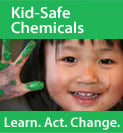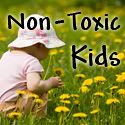There is ongoing debate about what are safe amounts of ingested BPA. The Federal guidelines state that a "safe upper limit" of daily exposure is at 50 micrograms of BPA per kilogram of body weight. This information is based on studies done back in the 1980s. But, there have been numerous more recent students done, that lead to more detrimental findings for living beings.
The Consumer Reports results are posted for their subscribers review. Being a long-time Consumer Reports advocate and subscriber, I am sharing a snapshot to a portion of their findings. For a complete report, please check out their site for more information at http://www.consumerreports.org/.
Here's a portion of the Consumer Reports finding on the products that they tested for BPA:
"We found that the average amounts of BPA in tested products varied widely; most items showed levels from trace amounts to about 32 parts per billion. Products in that range included canned corn, chili, tomato sauce, and corned beef.
The highest levels of BPA in our tests were found in the canned green beans and canned soup. In Progresso Vegetable Soup, the levels of BPA ranged from 67 to 134 ppb. In Campbell's Condensed Chicken Noodle Soup, the levels of BPA ranged from 54.5 to 102 ppb. Canned Del Monte Fresh Cut Green Beans Blue Lake had BPA levels ranging from 35.9 ppb to 191 ppb, the highest amount for a single sample in our test. Since we didn't test other canned green beans or soups, we don't know if this is typical of those products.
A 165-pound adult eating one serving of canned green beans from our sample, which averaged 123.5 ppb, could ingest about 0.2 micrograms of BPA per kilogram of body weight per day, about 80 times higher than our experts' recommended daily upper limit. And children eating multiple servings per day of canned foods with BPA levels comparable to the ones we found in some tested products could get a dose of BPA approaching levels that have caused adverse effects in several animal studies.
Given the significance of BPA exposure for infants and young children, we tested samples of Similac Advance Infant Formula and Nestlé Juicy Juice All Natural 100% Apple Juice. Samples of the Similac liquid concentrate in a can averaged 9 ppb of BPA, but there was no measurable level in the powdered version. Samples of the Nestlé Juicy Juice in a can averaged 9.7 ppb BPA, but there were no measurable levels in the samples of the same product packaged in juice boxes."


















